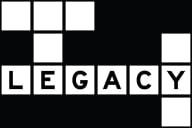You have /5 articles left.
Sign up for a free account or log in.
Congress is getting ready to review the Telecommunications Act of 1996 -- and a coalition of higher education groups on Tuesday outlined its agenda for the legislation.
Much of the agenda -- such as calling for more research and development on the Internet -- is not controversial. But the college groups are also inserting themselves into what is likely to be a messy debate over efforts by municipalities to provide free Internet access -- typically wireless -- in their communities. The college groups are endorsing this movement and calling on Congress to make sure it can continue -- despite strong opposition from the cable industry and other businesses that have paid to develop Internet networks.
The movement to provide free Internet access is picking up -- a CNET interactive map notes the different places where projects have started or are under consideration.
At a briefing on the college organizations' stance, officials said that this movement was increasingly important to higher education. "Colleges and universities have done a great job of wiring their own campuses," and more recently making their campuses wireless, said Mark A. Luker, vice president of Educause. "But we need the Internet to reach everyone."
Gary Bachula, vice president for external relations at Internet2, said it was important for lawmakers to remember that even if colleges have great technology access on their campuses, half of all students live off campus, and many professors need to do work from a variety of locations. "It's time for all communities to have broadband," he said.
Luker said he realized that "powerful factions" would try to use the telecommunications bill to limit the spread of free wireless, and he said that was why it was important for colleges to speak out.
One of those powerful factions is the National Cable and Telecommunications Association. Brian Dietz, senior director of communications at the association, said that there were questions about fairness and sustainability in looking at the free wireless movement. "The cable operators have reservations about local governments investing increasingly scarce taxpayer dollars for services already provided by the private sector with state-of-the-art technology," he said.
Dietz added that municipalities need to remember the significant "capital and maintenance costs associated with these networks," expenses that must be paid to keep networks functioning.
The college groups that are backing the position paper on the telecommunications law are the American Council on Education, the Association of American Universities, the American Association of Community Colleges, the American Association of State Colleges and Universities, the National Association of Independent Colleges and Universities, the National Association of State Universities and Land-Grant Colleges, the United Negro College Fund, Educause, Internet2 and ACUTA -- the Association for Communications Technology Professionals in Higher Education.








